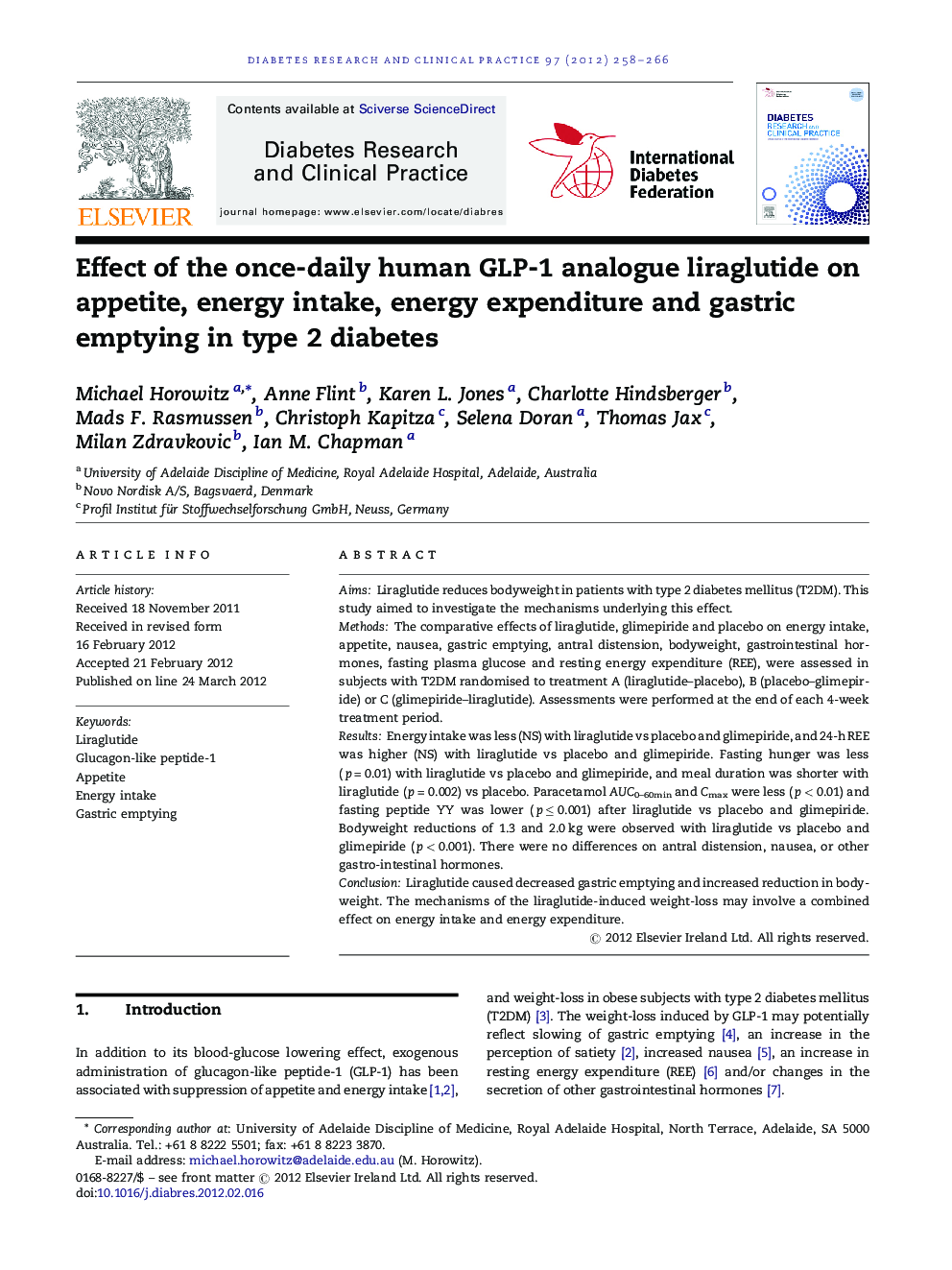| Article ID | Journal | Published Year | Pages | File Type |
|---|---|---|---|---|
| 2797116 | Diabetes Research and Clinical Practice | 2012 | 9 Pages |
AimsLiraglutide reduces bodyweight in patients with type 2 diabetes mellitus (T2DM). This study aimed to investigate the mechanisms underlying this effect.MethodsThe comparative effects of liraglutide, glimepiride and placebo on energy intake, appetite, nausea, gastric emptying, antral distension, bodyweight, gastrointestinal hormones, fasting plasma glucose and resting energy expenditure (REE), were assessed in subjects with T2DM randomised to treatment A (liraglutide–placebo), B (placebo–glimepiride) or C (glimepiride–liraglutide). Assessments were performed at the end of each 4-week treatment period.ResultsEnergy intake was less (NS) with liraglutide vs placebo and glimepiride, and 24-h REE was higher (NS) with liraglutide vs placebo and glimepiride. Fasting hunger was less (p = 0.01) with liraglutide vs placebo and glimepiride, and meal duration was shorter with liraglutide (p = 0.002) vs placebo. Paracetamol AUC0–60min and Cmax were less (p < 0.01) and fasting peptide YY was lower (p ≤ 0.001) after liraglutide vs placebo and glimepiride. Bodyweight reductions of 1.3 and 2.0 kg were observed with liraglutide vs placebo and glimepiride (p < 0.001). There were no differences on antral distension, nausea, or other gastro-intestinal hormones.ConclusionLiraglutide caused decreased gastric emptying and increased reduction in bodyweight. The mechanisms of the liraglutide-induced weight-loss may involve a combined effect on energy intake and energy expenditure.
